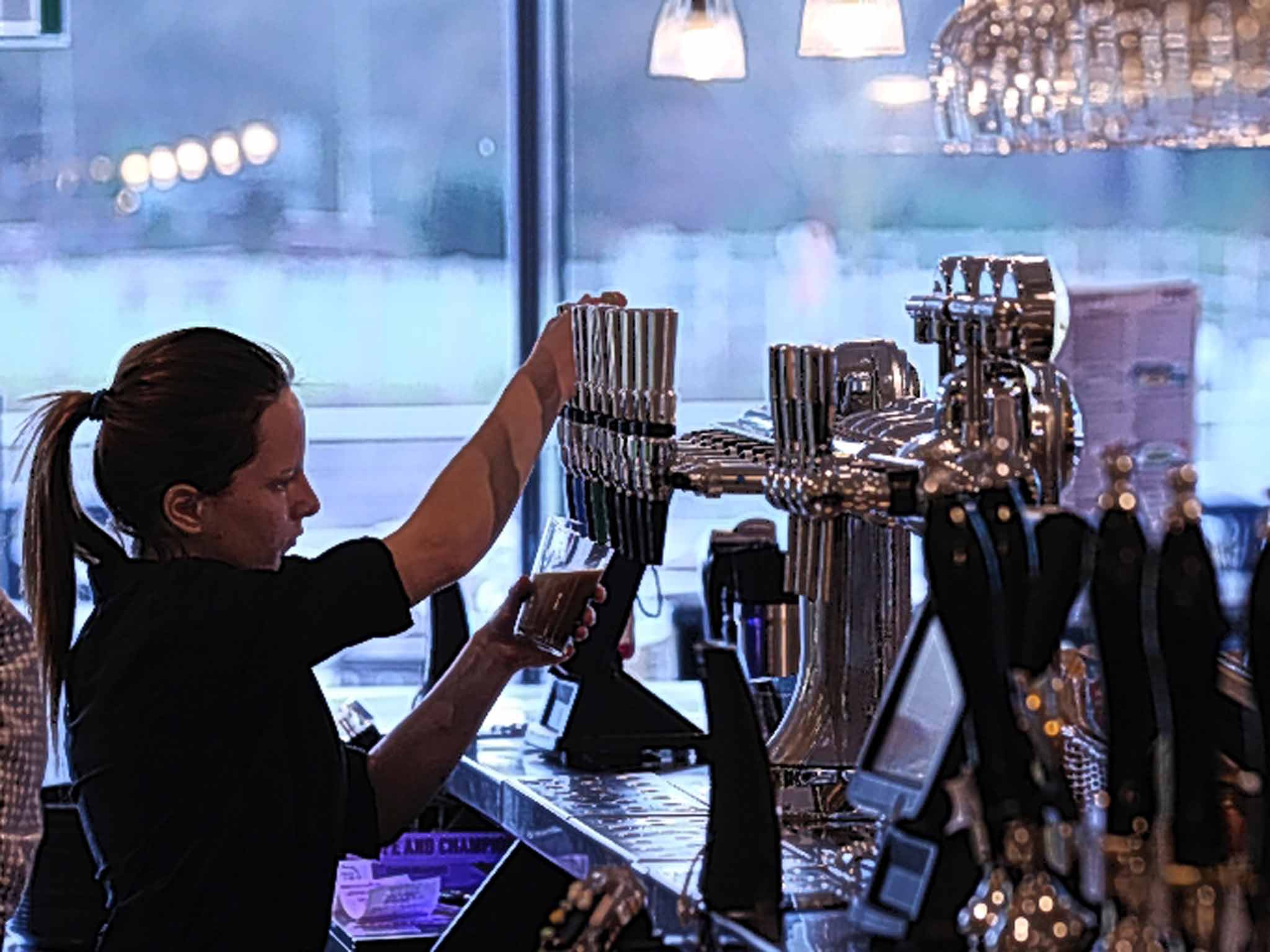How did JD Wetherspoons become the nation's local?
The cheap booze certainly helps, discovers Chris Green

Your support helps us to tell the story
From reproductive rights to climate change to Big Tech, The Independent is on the ground when the story is developing. Whether it's investigating the financials of Elon Musk's pro-Trump PAC or producing our latest documentary, 'The A Word', which shines a light on the American women fighting for reproductive rights, we know how important it is to parse out the facts from the messaging.
At such a critical moment in US history, we need reporters on the ground. Your donation allows us to keep sending journalists to speak to both sides of the story.
The Independent is trusted by Americans across the entire political spectrum. And unlike many other quality news outlets, we choose not to lock Americans out of our reporting and analysis with paywalls. We believe quality journalism should be available to everyone, paid for by those who can afford it.
Your support makes all the difference.Pub quiz question: why are so many branches of Wetherspoons called The Moon Under Water? Answer: it's the name of the ideal pub, according to George Orwell.
Writing in the Evening Standard in 1946, the celebrated journalist and 1984 author laid out his vision of the perfect drinking hole. "Atmosphere" was more important than beer, he argued, and it must be "quiet enough to talk" without the disturbance of "a radio, nor a piano". Food should be cheap.
Anyone who has been in the vague location of a town centre Wetherspoons at chucking out time on a Saturday night might dispute the suggestion that the customers are there for the peaceful, chatty atmosphere. But the chain has remained faithful to Orwell's other points: no music and cheap food (and beer).
Yesterday's decision by a County Court judge, who found the company guilty of racial discrimination after staff at a branch in north London refused entry to a group of Gypsies and Travellers, will no doubt prove painful for JD Wetherspoon and its multi-millionaire founder Tim Martin, a former barrister who reportedly attended many of the court hearings in person. But the chain's tight grip on the British pub industry is unlikely to change. Since 1979, when Martin opened his first Wetherspoon pub in Muswell Hill, north London, the company has grown rapidly and now has more than 930 premises through the UK employing 33,000.
The achievement is even more impressive considering that Martin was just 24 when he started the firm. "JD Wetherspoon" might sound like the name of a venerable old English landlord, but is in fact a bizarre fusion of Sheriff JD "Boss" Hogg from the Dukes of Hazzard TV series and one of Martin's old geography teachers, Mr Wetherspoon, who once told him he would never make it in business.
He could not have been more wrong. The 60-year-old Martin, who has been described as a literal giant of the British pub industry due to his 6ft 6in frame, is now worth more than £150m. His firm has continued to buck the trend of pub closures through its tried-and-tested formula of cheap beer, large premises and all-day food (the chain was recently named the nation's fifth biggest seller of breakfasts).
Martin's grounded management style involves subjecting ideas put forward by senior board members to a "sense test", presenting them to staff at weekly meetings to gauge their opinion. He also spends a couple of days a week travelling to different Wetherspoons – affectionately dubbed "Spoons" or "Spoonies" by regulars – to talk to customers directly, jotting down his observations in a notebook.
He has said in the past that a millionaire lifestyle does not suit him. "I don't have a yacht but I do have a surfboard and I like to travel first-class on the train. I've always driven a Volvo… I'm no Spartan but I don't understand the hedge-fund type of money," he told Management Today in 2012. "It's better to be on the same level as everyone else. If you buy a big estate with a hundred acres – and I have tried this – it's an isolated existence. It's more fun to be part of the mainstream human race."
Perhaps the most controversial Wetherspoons is the Hope and Champion, which became the country's first motorway service station pub when it opened near Junction 2 of the M40 in January last year. Open from 4am to 1am seven days a week, critics said it would cause "guaranteed drinking and driving", but Martin said the chances of this were "minimal" and pointed out that service station shops have sold alcohol for many years.
Wetherspoons has detractors, who find its establishments corporate and depressing. Journalist and author Will Self once described the chain's pubs as "shit, brown dollops of establishments smeared incontinently across our cities". Asked whether his pubs were a bit scuzzy, Martin once replied: "We're the number one seller of Pimm's in the world. How can we be downmarket?"
A picture of Sisyphus endlessly pushing his boulder up a hill reputedly hangs on the wall of his office, a reference to the never ending toil required to keep a pub in profit. But it is a battle the company seems to be winning. A Moon Under Water on every British high street? That would be Orwellian indeed.
Join our commenting forum
Join thought-provoking conversations, follow other Independent readers and see their replies
Comments